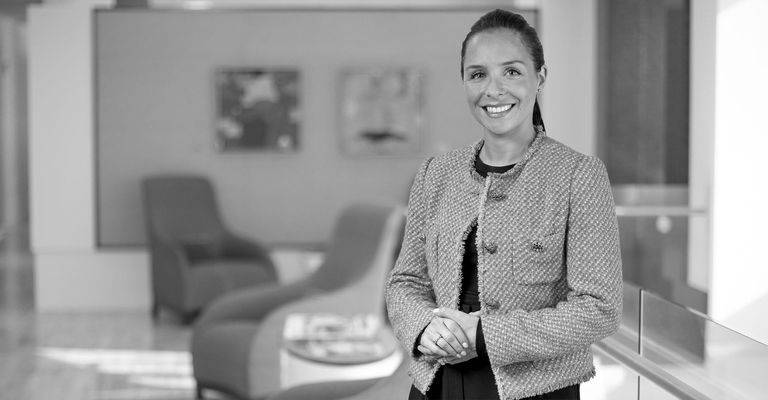Insights
Euro 2024 and intellectual property – what’s in play?
Digital Speaks Series / Summer of Sports Tech / Euro 2024
Jun 25, 2024The European Championship has kicked off, and in the first of our series of blogs with the Euro 2024 tournament as our focus, we are going to explore another side to the Euros:
- the intellectual property rights (IPR) which underpin certain aspects of the tournament, enabling businesses to protect their creative investments whilst capitalising on the success of the tournament; and
- certain of the key designs and technologies that make the game and the viewing experience what it is today.
The IPRs most likely to be in evidence at the Euros include:
- Trade marks
- Design rights
- Copyright
- Patents
Below we have looked at these in more detail, and with a tournament focus.
A trade mark can be a word, logo, shape or (surprisingly to some), even a sound or a scent, which operates as a badge of origin, letting consumers know where a product or service has come from and stopping third parties from benefitting from the goodwill that a business has built up in its brand. Trade marks can be registered in the jurisdictions within which they are used, or they can be used on an unregistered basis. Rights in registered trade marks can be easier to enforce against third parties who misuse them, but unregistered trade marks can also attract significant legal protection if they have become very well known in the market.
Trade marks at the Euros
From the badges and sports logos on the players’ shirts to the pitch-side advertising banners, the jingle used by German public transport, to sponsors’ prime time advertising campaigns, there will be no escaping the omnipresence of brands at the tournament. You might choose your mid-game refreshment, having been prompted by the sight of the tag-line of a sponsoring soft drinks company. Or, you might covet a pair of football boots bearing the same logo as those worn by your favourite player. The tournament and its official partners will be keenly monitoring attempts by those attempting to cash in on the commercial investment made by UEFA and its partners. UEFA rules typically require the host cities to designate several public places exclusively for tournament sponsors to advertise and to exclude other businesses from advertising in these spaces. And sponsors designing authorised merchandise take a dim view of third parties conducting ambush marketing campaigns which wrongly suggest the third party is a sponsor or endorser of the tournament or a particular athlete when it is not. Spotting the efforts of non-sponsors to drive press coverage at high profile sporting events with eye-catching stunts or slogans/iconography which mimic tournament trade marks is a sport in itself (some of you may remember the Bavaria beer campaign at the 2010 football world cup, for example!).
Design rights are a lesser known IP right, often not given the consideration they deserve, but design rights (both registered and unregistered) play an important role in protecting the appearance, shape, configuration or decoration of a product. Registered design rights in the UK, give the owner of such rights the exclusive ability to manufacture, use or sell any product that embodies or bears that registered design for a period of up to 25 years. A design is registrable so long as it is novel and possesses individual character. In parallel, in the UK, designs for the whole or part of an article (which are not commonplace in the relevant field) may be protected on an unregistered basis for a maximum period of 15 years.
Design rights at the Euros
The identifiability of a team’s football kit is a huge part of the game itself. Whilst a team’s kit will feature trade marks and copyright works, it may also embody design rights and many kit manufacturers will choose to register these design rights with the aim of preventing others from using those designs or copying their kits and producing unauthorised merchandise. With these registered design rights, kit manufacturers may also be able to prevent others from using their designs on other products, unrelated to football, including beach towels and pencil cases. This can present a tension for fans simply wishing to signal allegiance to a club or national team, who may be unaware of the unlicensed nature of merchandise they may have acquired from third parties.
In the UK, copyright protects literary, dramatic, musical, artistic works, sound recordings, film and typographical arrangements. Unlike in the US, in the UK and EU copyright arises automatically and does not need to be registered to be protected. For a work to qualify for copyright protection, it must be original and exhibit a degree of labour, skill and judgment. A copyright owner has the right to prevent others from using his or her work without first getting permission, by way of a licence (subject to certain narrow exceptions).
Copyright at the Euros
Of course, copyright exists in the teams’ badges and kits (which would constitute artistic works) and in the advertising campaigns devised by sponsors, but it also exists in the stadia in which the games are played. There will for example be copyright in the architectural drawings made of the stadium. However, the pictures and videos of a stadium taken by football fans will not usually infringe the copyright in the stadium design drawings, as the stadium is situated in a public place and is therefore subject to an exception to the copyright infringement provisions under the legislation. Copyright, however, under EU law, will not subsist in sporting events (such as football games) as they do not qualify for protection. The Court of Justice of the European Union said that the reason for this is because football games are governed by rules which mean they do not encompass any creative expression. On the other hand, works which are protected are those which are comprised in the actual broadcasts of the matches, such as montages of the game’s highlights (as someone had to use their creativity to produce these). Efforts to tackle illegal streaming of broadcasts of the matches redoubles during high profile sporting tournaments, with UEFA and broadcasters combatting live event piracy, using technology to block illicit online services.
Patents are registered legal rights which protect inventions. For an invention to be patentable it must be novel, inventive and be something that can be made and used, a method of doing something or a technical process. Patents can be renewed up to a maximum of 20 years.
Patents at the Euros
In recent years, Video Assistant Referee (also known as VAR) has become an essential element of major football games. VAR helps the referees on the field to make decisions during crucial moments of a football game using specialised video processing technology. The original VAR technology was patented over 20 years ago in 2001, but only in the last few years has its potential for use in sporting matches been realised (although its use is not without controversy!). Patents have also been registered in respect of the official ball of the Euros, and by shoe manufacturers in relation to the football boot – as far back as 1887 in the UK for the latter, although the boot more closely resembled a cowboy boot than the aerodynamic styles we see on the pitches today!
Final whistle
Wherever you’ll be watching the Euros this summer, keep in mind the impact of the careful management and exploitation of the intellectual property rights behind the scenes, as the marketisation of football game grows at pace. There are an abundance of opportunities and points of engagement at a tournament with this level of exposure, but businesses and fans alike can easily fall foul of some the pitfalls we have highlighted, in respect of the tournament itself and the broader game. Stay onside, and enjoy the game!
Related Capabilities
-
Intellectual Property & Technology Disputes
-
Sports, Media & Entertainment




